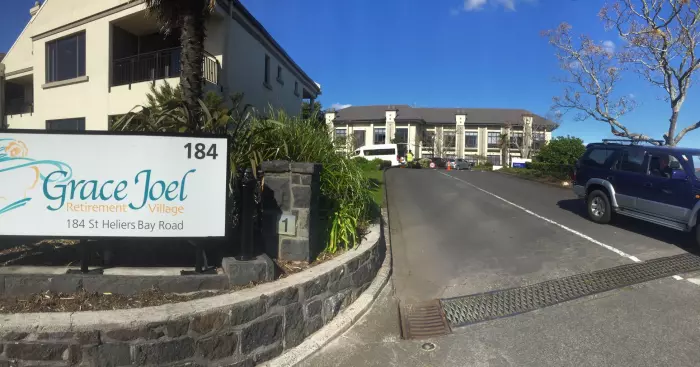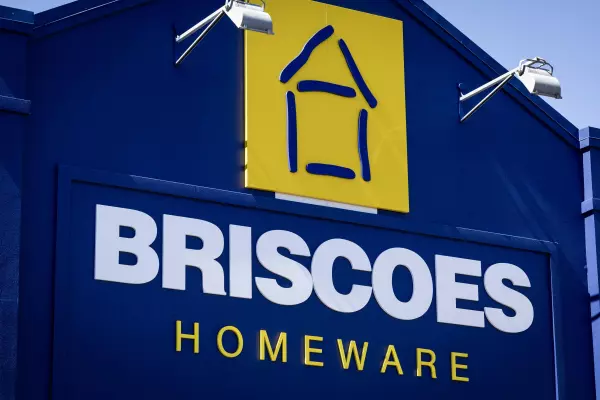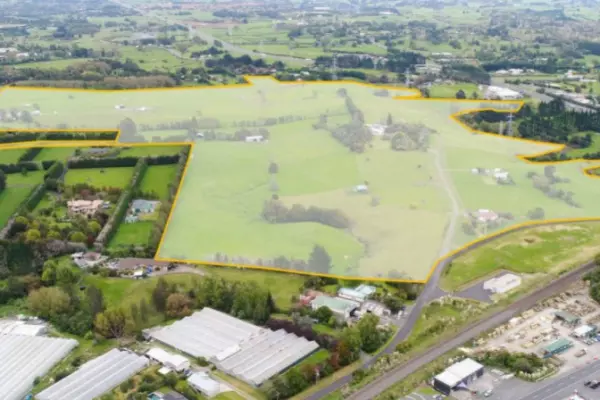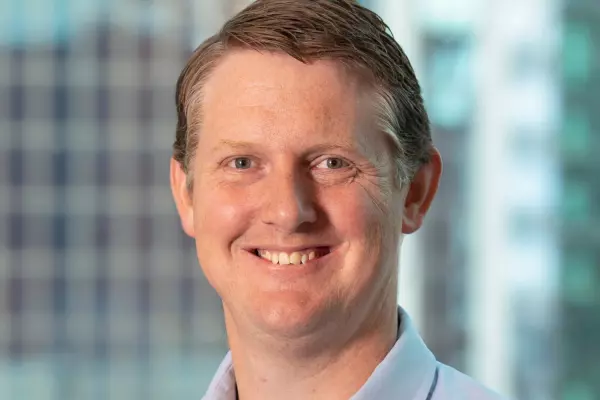CBRE director Michael Gunn and his team of valuers have built a formidable reputation within the retirement village and aged care sector because of their specialist knowledge developed over many years.
In a written response to questions, Gunn said his team was established in 2006 and was the first New Zealand firm to specialise in valuing aged care facilities.
"We have continued to invest in growing our team and its market-leading service. We are recognised and engaged by clients nationwide due to our expertise and ability to provide transparent, independent valuations based on macro factors, market evidence and extensive market analysis," he said.
By all accounts, Gunn's independence is also irreproachable. One fund manager told BusinessDesk of the time he tried to persuade Gunn to see things differently and failed.
"There's no way any of these retirement villages is going to be able to change his mind on anything," the fund manager said.
But it is very unusual for one valuation team to do the valuations for all listed companies, as well as some of the unlisted ones.
Elsewhere in the property sector, valuers rotate regularly and some companies have a formal rotation policy.
For example, Argosy Property's policy is that complete valuations be carried out at least annually by independent registered valuers.
"The valuation policy stipulates that the same valuer may not value a building for more than two consecutive years," Argosy said in its latest annual report.
Rotation principle
This conforms with a guiding light of current corporate governance practices; that experts such as auditors and valuers, as well as directors, should be rotated regularly for fear a too enduring relationship with a particular company might taint their judgement.
When it comes to auditors of public companies, they are required by law to rotate every seven years, followed by a five-year cooling-off period.
"When an individual is involved in an audit engagement over a long period of time, familiarity and self-interest threats might be created," according to the External Reporting Board.
These rules were formulated after a number of high-profile company collapses, such as Lehman Brothers and Bear Sterns, in which auditors formed too close a relationship to companies and this contributed to their collapse.
This is often referred to as auditor capture.
Closer to home, the case of Fuji Xerox's NZ auditor, whose name remains suppressed, is still winding its way through the Chartered Accountants Australia & NZ's disciplinary processes.
In this case, the auditor who headed Fuji Xerox's NZ audit team between 2002 and 2016 has already pleaded guilty to “negligence or incompetence in a professional capacity and that has been of such a degree it tends to bring the profession into disrepute.”
The auditor had presided over accounts concealing losses of more than $300 million.
No challenge
Salt Funds joint managing director Matthew Goodson said having all the aged care companies using the same valuer is good for consistency, "but not for challenging the process or getting another pair of eyes.
"You would hope to see a wider range of valuers. It would give you greater confidence in the numbers. It's one of those things that, if something ever went wrong, people would say in hindsight was wrong," he said.
However, "the banks are happy to lend on that and investors are happy to invest on that. No one seems particularly perturbed at the moment."
Valuing a retirement village of necessity includes making a wide range of assumptions from the location and age of the property through to the age and longevity of its occupants – the length of time a person stays in a village goes directly to that village's value, with the longer the average stay, the lower the village's value.
"There's a whole range of quite significant assumptions that have to be made in valuing these," Goodson said.
For example, how long it takes to resell a unit after its previous occupant dies can change that unit's value.
"Multiply that across the portfolio and that will make quite a difference," he said.
One reason the sector has relied so heavily on CBRE is because such assets change hands very infrequently – one of the most recent transactions was last November when Heritage Lifecare made a $52.5 million purchase of the Golden Healthcare Group in Christchurch.
This included seven care homes and two villages.
Office buildings, industrial properties and even shopping centres change hands more frequently and a number of different property firms have acknowledged experience and expertise in valuing such assets.
Changes in the wind
But there are some signs the status quo is changing, not least Arvida starting to use two valuers with its 2018 accounts, CBRE and Jones Lang LaSalle.
Arvida chief financial officer Jeremy Nicoll, who has been in his position since Arvida's 2014 float, said his own background was in working for other listed property companies, including Argosy and Vital Healthcare Property Trust and their previous managers ING and ANZ.
"We thought it's a big number on our balance sheet so we should look at getting another valuation" to allow the company to compare the values each firm came up with.
"My background is more in listed property and we always had panels (of valuers) and did rotations every year and moved it around," Nicoll told BusinessDesk.
"Michael (Gunn) does a great job. He's a great valuer and he's very fair and very firm on his views. He's very independent and he's definitely the market leader," he said.
"We just thought it would be good to get a bit of diversification. The reality is the outcomes of both valuers on particular villages is the same, so it doesn't make much difference."
Heritage Lifecare's chief executive, Norah Barlow, was Summerset Holdings' chief executive when it floated in 2011 and she said that company had deliberately changed valuers to CBRE ahead of the float because it wanted to be seen to be consistent with the then two other listed retirement village companies, Ryman Healthcare and Metlifecare.
"Comparability between the listed entities particularly was really important," Barlow said.
And naturally, Heritage uses CBRE as its valuer.
A dual-valuer approach
Current Summerset chief financial officer Scott Scoullar said he's worked in the sector for six years and the CBRE team are the acknowledged experts.
Notwithstanding that, and despite there being no mention of it in Summerset's annual reports, the company has started to use Jones Lang Lasalle to conduct a peer review "as a kind of cross check" and the company is moving to a dual-valuer approach.
Scoullar noted Summerset's auditor, EY, also has its own in-house valuers who have peer reviewed the company's valuations.
Oceania Healthcare's chief financial officer, Brent Pattison, said he's only been in his current position seven months and so inherited the use of CBRE as the company's valuer.
But the company does use different valuers on occasion.
Pattison was previously a merchant banker and worked on both the Arvida and Summerset floats, so he was aware CBRE has been treated as the sector's standard.
But if CBRE sets the valuation standard, there's no doubting Ryman Healthcare has set the standard for the NZ style of retirement villages and aged care.
Founded in the 1980s and listed on NZX in 1999, Ryman has expanded into the Australian state of Victoria where it has three villages open and plans to open another two by year's end.
Difficult to replicate
Chief executive Gordon MacLeod said his company uses CBRE as its valuer in Australia too, although a completely different team of people who use different models to the NZ team.
Even before CBRE NZ developed its aged care expertise, Ryman had a longstanding relationship with the firm and, given the specialised nature of valuing such properties, it's difficult for another firm to replicate CBRE's expertise, MacLeod said.
"If you look at Michael's team, I think there's about 10 people in the team. He has the most resources available to him," he said.
But he noted Jones Lang Lasalle has been developing more expertise, notably through their white papers, and "it's healthy to see them develop."
The 2020 report was the firm's eighth and noted its database included more than 400 villages accommodating about 45,000 residents.
As with construction of new villages, Ryman has its own inhouse valuation expertise which acts as a cross check of CBRE's work, as does its auditor, Deloitte.
"You can't just have a valuation and slot it into your accounts, you need to deeply understand it," MacLeod said, noting he had been a corporate finance partner with PwC before joining Ryman in 2007.
Back then, there were few operators in the sector, one reason why CBRE gained its leading position, and "it's still a small sector compared to where it's going to go."














